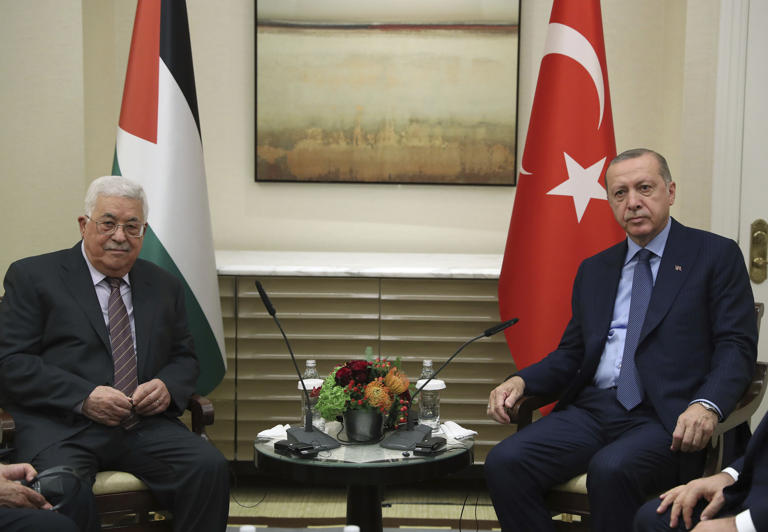News outlet Medya Ege reported Erdogan to have said, "We, as the State and Government of the Republic of Turkey, have cut off relations with Israel. We do not have any relationship with Israel at this point. Period."
Erdogan made these comments to journalists aboard his plane following his recent visits to Saudi Arabia and Azerbaijan. Erdogan highlighted his condemnation of what he termed genocide in Gaza and Lebanon.
He emphasized the urgent need for humanitarian aid and an immediate ceasefire, "As you know, intense efforts are being made to keep the pressure on Israel alive and to take coercive measures against this country on the basis of international law We show it," he is reported to have said.
At the time of writing the Turkish embassy in Tel Aviv is still operating and Jerusalem has not made any official statement about Erdogan's comments.
Newsweek has reached out to the Turkish Embassy in Israel for comment by email.
Erdogan's Advocacy for Humanitarian Aid
The Turkish president has positioned himself as a vocal critic of Israel in recent years, and his latest announcement marks a sharp escalation in diplomatic tensions between the two nations.
He has urged the United Nations and other international bodies to take stronger action to ensure the free flow of essential supplies, including food, water, and medical resources, to those affected by the ongoing conflict.
Turkey has positioned itself as a key player in the regional efforts to provide aid to Palestinians and refugees in neighboring countries, offering both logistic support and political advocacy.
A Shift in Regional Alliances
Erdogan's declaration of severing ties with Israel also comes at a time when Turkey is seeking to strengthen its relationships with other regional powers, notably Saudi Arabia and Azerbaijan.
His recent visits to both countries were seen as part of an effort to recalibrate Turkey's foreign policy and enhance its influence in the Middle East and Caucasus. By distancing Turkey from Israel, Erdogan is signaling a shift toward more supportive ties with nations critical of Israeli policies.
At the same time, the announcement is likely to have broader implications for the geopolitical landscape in the region, while Turkey's decision will likely reverberate through its alliances with NATO and its role in the ongoing Syrian conflict.
Turkey's foreign policy moves, especially in the context of Middle Eastern affairs, have often been a balancing act between opposing regional factions.
Turkey's Commitment to Palestinian Cause
The severing of relations with Israel is part of Turkey's long-standing support for the Palestinian cause, which has been central to Erdogan's foreign policy for over a decade.
His government has frequently denounced Israeli military actions in Gaza, calling for stronger international measures to hold Israel accountable for its treatment of Palestinians. Erdogan's rhetoric has struck a chord with many in the Muslim world, positioning Turkey as a vocal defender of Palestinian rights and a prominent advocate for ending the Israeli occupation.
While the diplomatic break with Israel may have consequences for Turkey's relations with Western allies, including the U.S., it also reflects the increasingly assertive role that Turkey is taking in shaping Middle Eastern geopolitics.
































